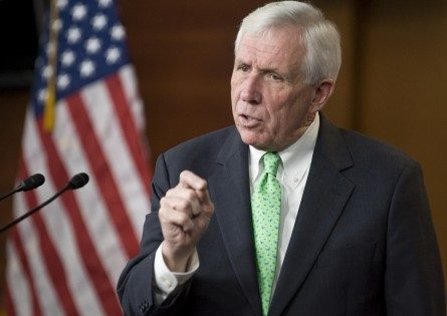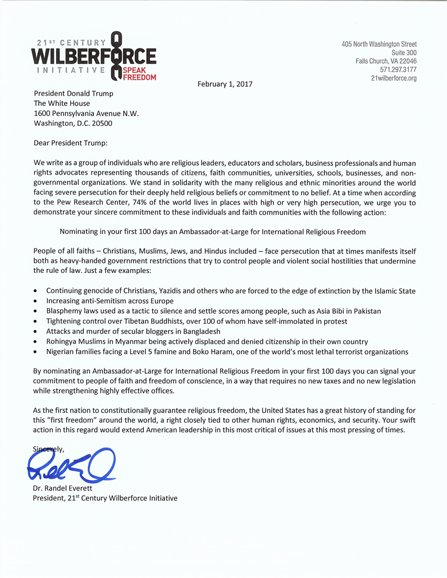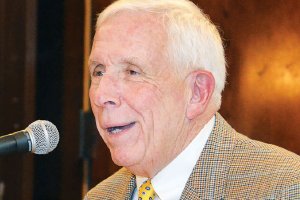Religious freedom advocacy group 21st Century Wilberforce Initiative (21CWI) sent a letter to President Trump this week, signed by 715 human rights and religious liberty proponents encouraging the administration to swiftly nominate an Ambassador-at-Large for International Religious Freedom.

21CWI states that with 7,000 people projected to be killed for their religious beliefs in the next year, the position should be filled in the first 100 days of the administration. Five billion people face high or very high restrictions on their freedom of religion or belief, according to the World Watch List released in January by Open Doors USA.
The Ambassador-at-Large heads the independent, bipartisan U.S. Commission on International Religious Freedom (USCIRF) created by the 1998 International Religious Freedom Act that monitors the universal right to freedom of religion or belief abroad. USCIRF uses international standards to monitor religious freedom violations globally and makes policy recommendations to the President, the Secretary of State, and Congress.
The term of Rabbi David Saperstein, who was appointed by President Obama in 2014, expired January 20, and the position remains empty. Over the past two decades, Presidents have taken more than a year to nominate a candidate for the position, which the letter says cannot be repeated in these times of rising religious persecution worldwide.

The Ambassador-at-Large “advocates for freedom of religion which underpins a wide array of human rights, economic interests and national security,” 21CWI says.
Elijah Brown of Wilberforce Initiative said: “There is mounting evidence that countries that maintain broad, plural, and inclusive religious freedom are less prone to violence, less likely to export terrorism, and more likely to grow their overall economy.” This aligns with the statements by USCIRF chair Rev. Thomas J. Reese and vice chair Dr. Daniel I. Mark that “[N]early every government and entity that poses a major foreign policy challenge to the United States also commits monumental religious freedom abuses.”
Read the full text and signatories of the 21st Century Wilberforce Initiative letter sent to the President.
The Wilberforce Initiative is named for 19th-century British Member of Parliament William Wilberforce who led a slave trade abolition movement and championed education to raise religious and political awareness, policy engagement, and collaborative partnerships. The Mission Statement of 21CWI: As religious freedom advocates, we mobilize and equip partners, including Christians, activists and people of other faiths, to promote global protections and reforms through Advocacy, Capacity building and Technical innovations (ACT).
Retired U.S. Congressman Frank R. Wolf, a central proponent and author of the current Religious Freedom Restoration Act, is a Distinguished Senior Fellow of the Wilberforce Initiative.


